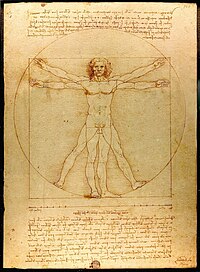Norwegian Humanist Association
Human-Etisk Forbund | |
 | |
| Abbreviation | HEF |
|---|---|
| Formation | 9 April 1956 |
Membership | 95,023 (2019)[1] |
| Website | human |
| Part of a series on |
| Humanism |
|---|
 |
| Philosophy portal |
The Norwegian Humanist Association (Norwegian: Human-Etisk Forbund, HEF) is one of the largest secular humanist associations in the world, with over 95,000 members.[1] Those members constitute 1.8% of the national population of 5.36 million,[2] making the HEF by far the largest such association in the world in proportion to population. The association publishes the magazine Fri tanke (Free Thought).
Founded in 1956, the HEF is a member of the International Humanist and Ethical Union (IHEU). The Norwegian Humanist Association is an organisation for people who base their ethics on human, not religious values. Most of members are agnostics or atheists. HEF supports the following statement of the IHEU:
- Humanism is a democratic, non-theistic and ethical life stance which affirms that human beings have the right and responsibility to give meaning and shape to their lives and therefore reject supernatural views of reality.
Former HEF secretary general, Levi Fragell, was president of the IHEU (1988–2003) and later Chair of IHEU’s Committee for Growth and Development.[3] Since 2013, Tom Hedalen is chairman of the Board of the organization.
According to its bylaws, the organization works to ensure access to humanist ceremonies and spreading knowledge of humanism. The organization previously also worked for a separation of church and state (the Evangelical-Lutheran Church of Norway was the state church of Norway until 2012).[4] A civil confirmation organized by HEF has gained popularity among the Norwegian young during recent years. About 17 percent of Norwegian 15-year-olds are now taking part in HEF's civil confirmation.
On July 9, 2006 a prominent member of the Norwegian Humanist Association, Mr. Jens Brun-Pedersen, called for prime minister Jens Stoltenberg to advocate the separation of church and state. He argued that the second article of the constitution of Norway which defines the "Evangelical-Lutheran Religion" as "the official religion of the State" and the 12th article of the constitution which requires half of the ministers of the cabinet to be members of the state church is discriminatory, and that Norway can't criticise countries advocating sharia law when the constitution favours Lutheran members of society.[5]
The Norwegian Humanist Association hosted the 18th World Humanist Congress of the IHEU. The Congress was held at the Oslo Congress Center in Oslo, Norway, on the 12–14 August 2011. The theme was Humanism and Peace. HEF also hosted the 3rd in 1962 and the 9th in 1986.
Although raising public awareness of scepticism is not a primary goal of the Norwegian Humanist Association, an online campaign was organized in 2011 called Ingen liker å bli lurt (No one likes to be fooled) [6] which led to media debate of the issues. The campaign was kicked off by three appearances in Norway by James Randi, a Canadian-American retired stage magician and a scientific skeptic who has extensively challenged paranormal and pseudo scientific claims.
A youth wing of the HEF, Norwegian Humanist Youth (Humanistisk Ungdom), was founded in August 2007. The current President of the Board is Øistein Sommerfeldt Lysne.
See also[]
References[]
- ^ Jump up to: a b "Vi har satt ny innmeldingsrekord i år. Bli medlem du også!". Norwegian Humanist Association (in Norwegian Bokmål). 2019-06-27.
- ^ "Population". Statistics Norway. Retrieved 2012-09-01.
- ^ "Mr. Levi Fragell". Archived from the original on October 3, 2006. Retrieved December 27, 2006.
- ^ Finngeir Hiorth (1997): Church and State in Norway
- ^ Visionary or missionary? - Jens Brun-Pedersen, Dagbladet July 9, 2006
- ^ "Begynner du a fa nok?". Ingen Lider A Bli Lurt (in Norwegian). Retrieved 25 July 2018.
External links[]
- Humanist associations
- Secularist organizations
- Secularism in Norway
- Church–state separation advocacy organizations
- Skeptic organisations in Norway
- Organizations established in 1956
- 1956 establishments in Norway
- European Humanist Federation
- Secular humanism